-
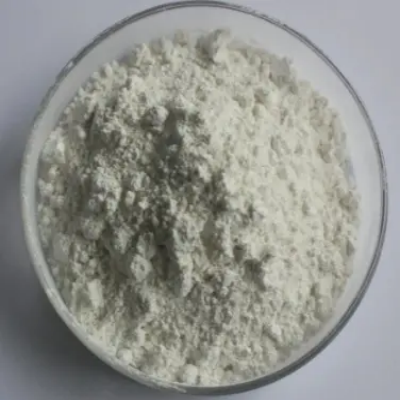
trans-1-(benzyloxycarbonyl)-4-(4-(trifluoromethyl)phenyl)pyrrolidine-3-carboxylic acid CAS:2227719-48-2
trans-1-(benzyloxycarbonyl)-4-(4-(trifluoromethyl)phenyl)pyrrolidine-3-carboxylic acid is a chemical compound utilized in organic synthesis and pharmaceutical research. It consists of a pyrrolidine ring substituted with a trifluoromethylphenyl group, a benzyloxycarbonyl protecting group, and a carboxylic acid functionality. This compound exhibits trans configuration and is valuable for its unique molecular structure in the synthesis of diverse organic molecules, particularly those with potential pharmaceutical applications.
-
![tert-butyl 5-azaspiro[2.5]octan-8-ylcarbamate CAS:1232542-24-3](https://cdn.globalso.com/xindaobiotech/0ANLZFQ@KTD4RBHT8A73.png)
tert-butyl 5-azaspiro[2.5]octan-8-ylcarbamate CAS:1232542-24-3
Tert-butyl 5-azaspiro[2.5]octan-8-ylcarbamate is a chemical compound utilized in organic synthesis and pharmaceutical research. It features a spiro[2.5]octane ring system substituted with a tert-butyl group and a carbamate moiety, offering versatile applications in the synthesis of diverse organic molecules with potential pharmaceutical applications.
-
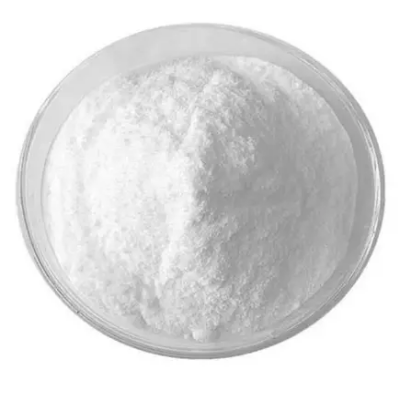
N-(2-Chloro-4-fluoro-6-methylphenyl)acetamide CAS:1710696-26-6
N-(2-Chloro-4-fluoro-6-methylphenyl)acetamide is a chemical compound widely employed in organic synthesis and pharmaceutical research. It features an acetamide group attached to a phenyl ring substituted with chlorine, fluorine, and methyl groups. This compound is available in its pure form and is commonly used in laboratory settings for various chemical reactions and investigations. With its specific molecular structure, N-(2-Chloro-4-fluoro-6-methylphenyl)acetamide offers unique reactivity and versatility in synthetic pathways, making it a valuable tool in medicinal chemistry and related fields.
-

2-chloro-4-fluoro-6-methylaniline hydrochloride CAS:332903-47-6
2-Chloro-4-fluoro-6-methylaniline hydrochloride is a chemical compound extensively utilized in organic synthesis and pharmaceutical research. It features an aniline ring substituted with chlorine, fluorine, and a methyl group, forming a versatile building block for diverse organic molecules with potential pharmaceutical applications.
-
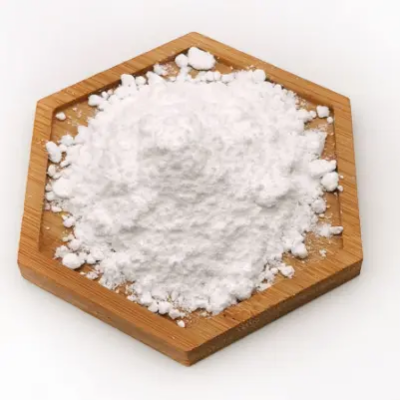
methyl 2-(aminomethyl)isonicotinate hydrochloride CAS:1072438-54-0
Methyl 2-(aminomethyl)isonicotinate hydrochloride is a chemical compound commonly used in organic synthesis and pharmaceutical research. It consists of an isonicotinate scaffold substituted with a methyl group, an aminoethyl moiety, and a hydrochloride salt. This compound is notable for its versatility and utility in synthetic chemistry, particularly in the creation of diverse organic molecules with potential pharmaceutical applications.
-

8-bromoisoquinolin-4-ol CAS:864738-31-8
8-Bromoisoquinolin-4-ol is a chemical compound utilized in organic synthesis and pharmaceutical research. It belongs to the class of isoquinolinol derivatives, featuring a bromine atom attached to the isoquinoline ring at the 8-position and a hydroxy group at the 4-position. This compound is available in its pure form and is commonly used in laboratory settings for various chemical reactions and investigations. With its specific molecular structure, 8-Bromoisoquinolin-4-ol offers unique reactivity and versatility in synthetic pathways, making it a valuable tool in medicinal chemistry and related fields.
-
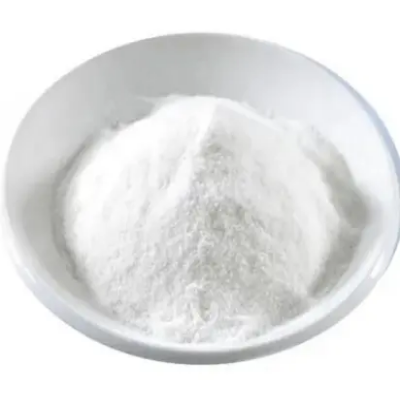
trans-Methyl 4-(4-(trifluoromethyl)phenyl)pyrrolidine-3-carboxylate hydrochloride CAS:1022224-85-6
trans-Methyl 4-(4-(trifluoromethyl)phenyl)pyrrolidine-3-carboxylate hydrochloride is a chemical compound utilized in organic synthesis and pharmaceutical research. It consists of a pyrrolidine ring substituted with a trifluoromethylphenyl group and a methyl ester functionality, with the hydrochloride salt form. This compound exhibits trans configuration, which influences its chemical properties and reactivity in various reactions. Its unique molecular structure makes it valuable for the synthesis of diverse organic molecules, particularly those with potential pharmaceutical applications.
-
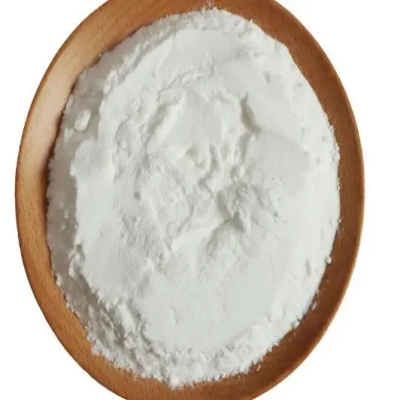
1-Hydroxyisoquinoline-8-carboxylic acid CAS:116409-31-5
1-Hydroxyisoquinoline-8-carboxylic acid is a chemical compound utilized in organic synthesis and pharmaceutical research. It belongs to the class of isoquinoline derivatives, featuring a hydroxy group attached to the isoquinoline ring at the 1-position and a carboxylic acid functional group at the 8-position. This compound is available in its pure form and is commonly used in laboratory settings for various chemical reactions and investigations. With its specific molecular structure, 1-Hydroxyisoquinoline-8-carboxylic acid offers unique reactivity and versatility in synthetic pathways, making it a valuable tool in medicinal chemistry and related fields.
-
![6-Chloro-1H-benzo[d]imidazole-4-carboxylicacid CAS:180569-27-1](https://cdn.globalso.com/xindaobiotech/NIQ7288PPWVEXNL@IMY190.png)
6-Chloro-1H-benzo[d]imidazole-4-carboxylicacid CAS:180569-27-1
6-Chloro-1H-benzo[d]imidazole-4-carboxylic acid is a chemical compound widely employed in organic synthesis and pharmaceutical research. It features a benzo[d]imidazole ring substituted with a chlorine atom at the 6-position and a carboxylic acid group at the 4-position. This compound is valued for its structural attributes, making it a versatile building block in the creation of diverse organic molecules, particularly those with potential pharmaceutical applications.
-
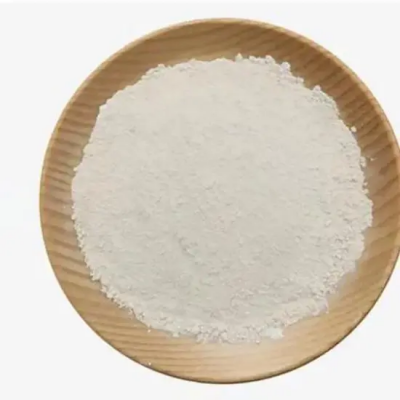
5-Fluoropicolinohydrazide CAS:1254073-41-0
5-Fluoropicolinohydrazide is a chemical compound used primarily in organic synthesis and pharmaceutical research. It belongs to the class of picolinohydrazides, featuring a picolinyl group substituted with a fluorine atom and a hydrazide functional group. This compound is available in its pure form and is commonly used in laboratory settings for various chemical reactions and investigations. With its specific molecular structure, 5-fluoropicolinohydrazide offers unique reactivity and versatility in synthetic pathways, making it a valuable tool in medicinal chemistry and related fields.
-
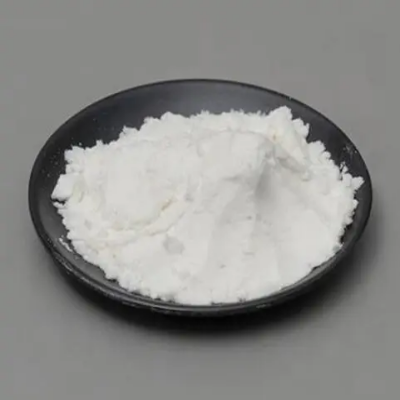
1-Methyl-1,2,3,4-tetrahydroquinolin-4-amine hydrochloride CAS:851390-46-0
1-Methyl-1,2,3,4-tetrahydroquinolin-4-amine hydrochloride is a chemical compound utilized in organic synthesis and pharmaceutical research. It features a tetrahydroquinoline scaffold substituted with a methyl group and an amino group, forming a versatile building block for diverse organic molecules with potential pharmaceutical applications.
-
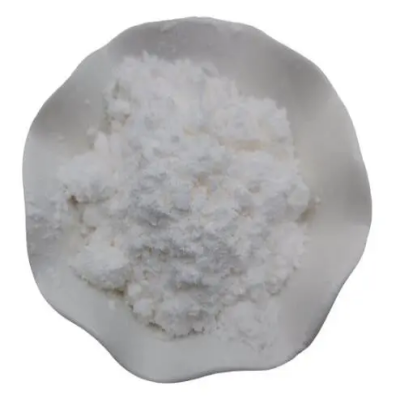
(S)-4-benzyloxymandelic acid CAS:197437-40-4
(S)-4-benzyloxymandelic acid is a chemical compound widely employed in organic synthesis and pharmaceutical research. It consists of a mandelic acid moiety substituted with a benzyl group, offering versatile applications in the synthesis of diverse organic molecules with potential pharmaceutical applications.

